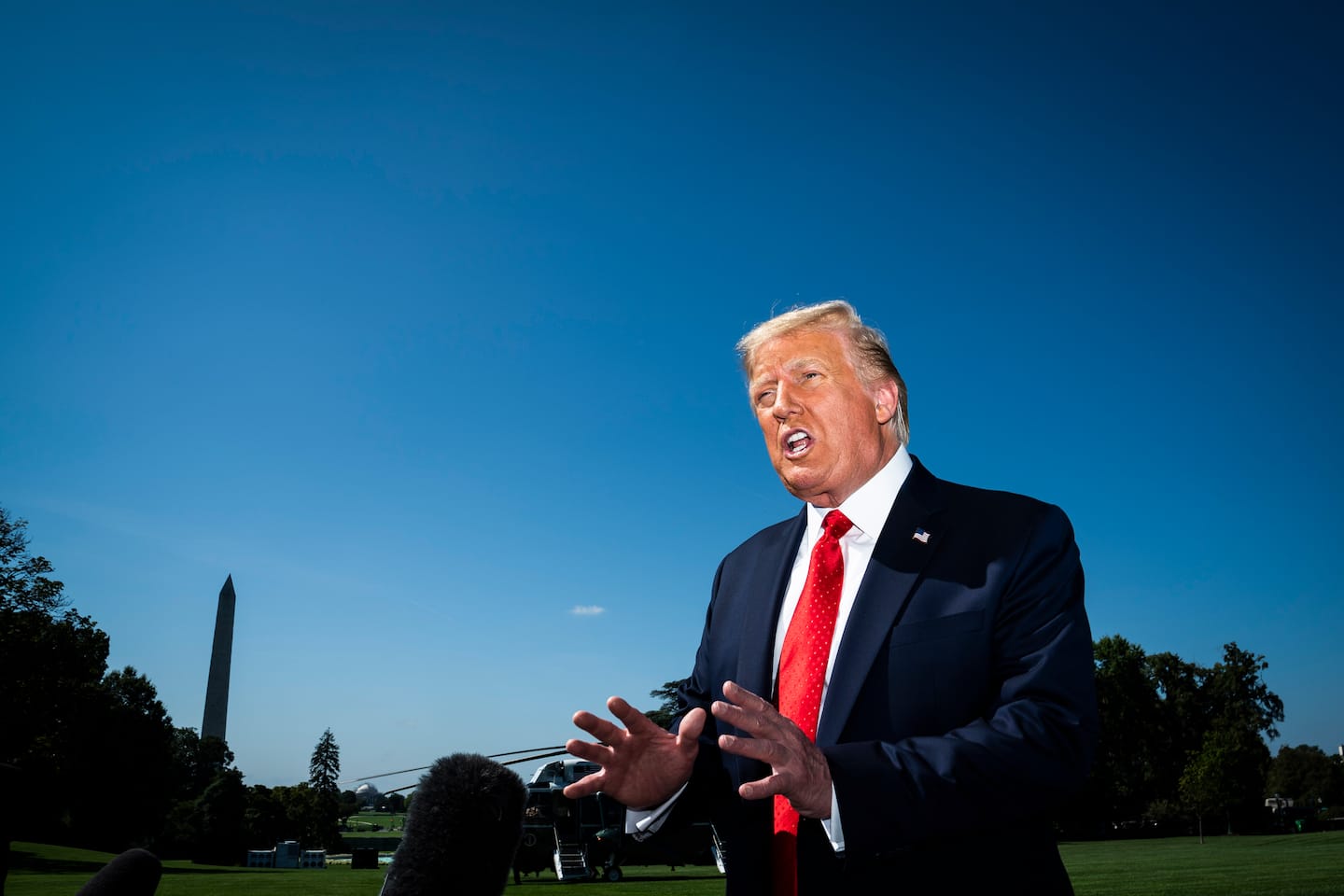The worst defenses of Trump on the Capitol riot

Let’s run through some of them.
It was antifa or other provocateurs
Lawmakers such as Rep. Matt Gaetz (R-Fla.) cited a piece from the Washington Times suggesting facial recognition technology had identified members of antifa in the crowd, but the article turned out to be wrong and was corrected. Rep. Paul A. Gosar (R-Ariz.) baselessly speculated the same day as the attack that it was a “false flag” event. Axios even reported this week that Trump has been pushing this narrative behind closed doors, with his Twitter ban perhaps being all that’s preventing him from directly sharing it with the world.
This video is well worth a watch:
Advocates of this theory have since begun to seize upon the arrest of one man involved in the scenes: John Sullivan. Sullivan doesn’t fit the mold of a Trump supporter. In fact, he is a self-described racial justice activist. Trump’s personal lawyer Rudolph W. Giuliani late Thursday used the arrest to again point the finger at alleged antifa involvement and talked about it on his podcast. Donald Trump Jr. liked a tweet highlighting Sullivan’s role.
As the Intercept wrote Thursday of Sullivan, though, he is viewed with deep suspicion among activists who know him, having latched onto various causes and having no discernible and consistent ideology. Some have even expressed belief that he was a right-wing infiltrator in their cause.
Is it possible that there were some non-Trump-supporting provocateurs in the crowd that stormed the Capitol? Of course. It was a big crowd. Activist tourism exists. There is no evidence that they actually led the charge, though. As House Minority Leader Kevin McCarthy (R-Calif.) said during the impeachment debate this week, “Some say the riots were caused by antifa. There is absolutely no evidence of that. And conservatives should be the first to say so.”
The supporters weren’t actually acting on Trump’s behalf
Also during the impeachment debate this week, Rep. Brian Mast (R-Fla.) highlighted a variation of the above theory: the idea that, whoever these people were, they weren’t acting on Trump’s behalf or, more directly, at his request.
“Has any one of those individuals who brought violence on this Capitol been brought here to answer whether they did that because of our president?” Mast asked. He paused for effect. “It appears I will receive no answer,” he concluded, despite not having posed the question as an inquiry to which anyone would respond.
As Philip Bump wrote afterward, though, while nobody had indeed been brought to answer that question in the House’s proceedings, there are examples of those who participated citing Trump’s invitation.
There are also videos of those involved citing Trump’s invitation.
Whether Trump’s comments and actions amount to incitement requires meeting a certain legal threshold. What’s more, the above comments could be understood as Trump urging them to merely be there to protest rather than to get violent and overtake the Capitol.
But plenty of people clearly believed they were acting on behalf of the president who, it bears noting, released a video the same day labeling them “very special” and saying “We love you.” That doesn’t exactly speak to the idea that they weren’t doing what he wanted. And reporting since then has suggested Trump, who declined to forcefully repudiate the mob as the takeover was unfolding, approved of the scenes in real time.
The preplanning by some shows Trump didn’t incite
Another prevalent argument is that the increasing evidence of preplanning by some involved in the attempted insurrection suggests Trump didn’t actually incite them.
“If these federal law enforcement agencies had prior knowledge that this was a planned attack then POTUS didn’t incite anything,” said Trump Jr.
“How does the President incite an attack that was preplanned and already underway before his speech was concluded?” Rep. Scott Perry (R-Pa.) asked rhetorically Wednesday.
Rep. Lee Zeldin (R-N.Y.) added: “We know that this was preplanned and it started while the president was speaking. Why is that not in the articles of impeachment?”
Others have promoted similar arguments about the apparent preplanning. “If so, Trump didn’t instantaneously incite them to violence on Jan. 6,” said conservative journalist David Martosko. “Am I wrong here?”
He’s perhaps not wrong. But that’s not the question actually posed. The argument has never been that Trump’s comments Jan. 6, in a vacuum, incited what happened. Even the impeachment article Democrats put forward cited Trump’s prior conduct, including his having repeatedly suggested the election had been stolen from him. Trump has also repeatedly alluded to the idea that his supporters might get violent and lamented that they hadn’t gone as far as Democrats in fighting for their ideals.
Suggesting this is about one speech is conveniently reductive, especially when even those involved referenced his earlier comments spurring them to action. What’s more, even if this were about Trump’s speech, just because some people planned ahead doesn’t mean others weren’t incited.
It’s a great example of how, when you don’t have a great argument to dispute the emerging narrative — and Republicans very notably have generally done little to actually defend Trump’s conduct — you create a new one that is more easily debunked. But as with the above, it involves applying blinders when it comes to what has actually happened and been alleged.






